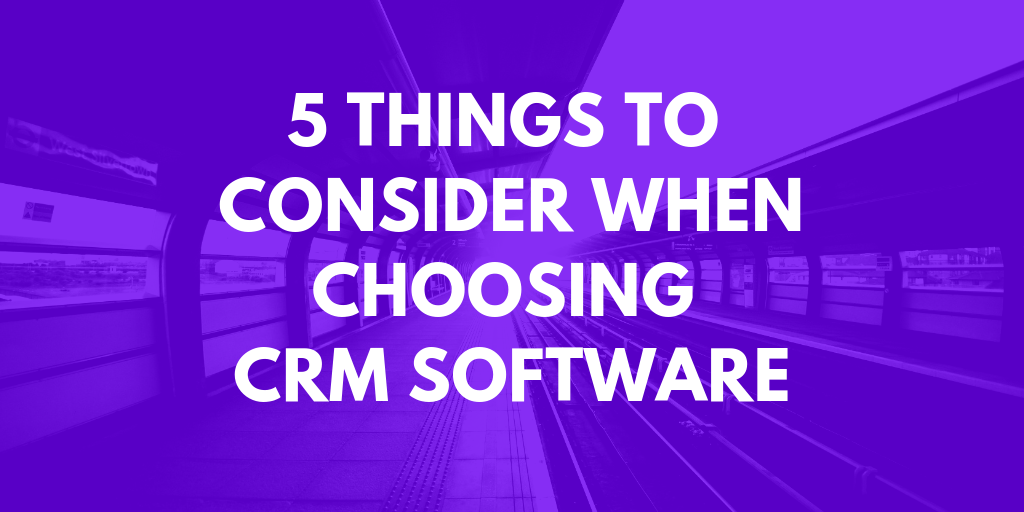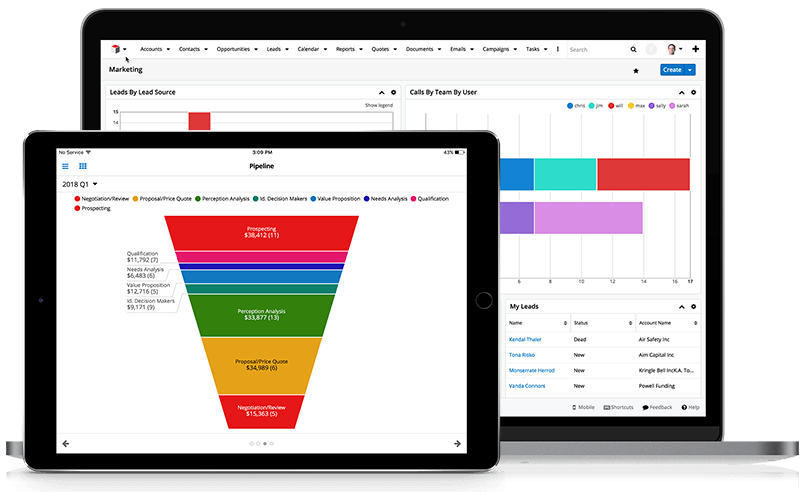
How do you choose the right CRM for your company?
Sometimes it can feel like an enormous process to enter into an agreement with a new CRM software vendor. By the time you make that “final” decision, it can feel as though you’ve been engaged with your new vendor for ages. That’s ok though, choosing a CRM platform is an important decision that shouldn’t be rushed. Here are five things to consider to help you as you make your decision:
- Focus on the CRM Features that Matter
Organizations must fight the tendency to be seduced by too many advanced features. At the start of an evaluation cycle, organizations are typically sure of what they need and want from their CRM. Said simply, a tool to help them build better business relationships. However, the CRM industry has been working hard to load up its suite of offerings with more and more stuff. As a result, organizations get sucked into paying for more than they need. Too much excitement around new technology can cause companies to be too ambitious about their implementation plans.
2. Look for Hidden Costs
Of course, you need to set a budget in the early stages of choosing a CRM, but it’s not always that simple. Some CRMs may have pricing models that make it look like you’d be paying less overall, while really charging other fees on the side. Be sure you really understand what all is covered in the price you sign on for.

We recommend ensuring your contract includes simple, predictable pricing with no hidden fees or forced upgrades. Your CRM should include sales, service and other core CRM capabilities for one price with absolutely no hidden fees. Examples of hidden fees are charging for data storage, forced updates and API calls.
3. Figure out Training, the User Experience, and User Adoption
There are a lot of decision-makers who must be convinced when it comes time to choosing a CRM. One group that is often left out though…the daily users. Before you spend a dollar, make sure your vendor or partner has a plan for getting your daily users excited to use the new CRM.
UX Matters: Speaking of those daily users, they’ll be much more likely to buy into a CRM that jives with the way they want to work. No one wants to spend their free time basking in the conveniences of modern technology and then step back in time when forced to use archaic software at work. A modern, engaging experience that is tailored to every user’s unique needs across any device is essential for a successful CRM roll-out.
Training: When you deploy a new CRM, it’s wise to assume one thing: your team won’t have the time or energy to learn the new system on their own. If left on their own, they’ll spend a good portion of the first year flailing on their own. At a minimum you should have a plan to ensure all employees learn how to use modules, filter list views, and build reports. Enabling your team to get a handle on how to do the basics will make a huge difference in the long-term value you get from the system.
User Adoption: Executive mandates (“you are going to use the new CRM or else!”) rarely lead to long term success. If your team does not understand how CRM is going to make their lives easier and help them do their jobs better than they probably won’t use it as much as they should.
4. Don’t forget about Mobile

It’s not a profound statement to say we are in a “mobile-first” world. It’s been that for a while and it will continue. So, why do we force employees who live on their phones to work with the CRM on a laptop or desktop?
Luckily the CRM industry is finally catching on and offering better and better CRM apps. If you have employees that are out in the field visiting customers and prospects, make a quality mobile experience a top priority.
5. Flexibility to Fit into your Business
Your CRM should play nice with everyone. It needs to integrate with email, marketing automation, project management, relationship analytics, and more. It should also provide your sales teams with relevant financial information from your ERP.
That’s just the beginning. You’ll want to make sure the CRM fits into how you want to use it. Your vendor should have a robust partner ecosystem with hundreds of extensions, integrations, and custom applications for the platform.
On top of flexibility to go wherever your business takes you, the CRM must scale. You don’t want to buy a “small business” CRM today and be forced to upgrade to an enterprise version when things take off.
This may all sound like a lot because it is. If you need help getting started on choosing a new CRM, contact FayeBSG today.
The post 5 Things to Consider When Choosing CRM Software appeared first on FayeBSG.
No comments:
Post a Comment